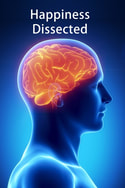Chapter 16
Adulterous Guilt
People Affected: pregnant women and mothers with children younger than 33 months
Type of Emotion: conceptual punishment
Conceptual Trigger: “ I made a man feel sexual pleasure who is not the father of my child "
Mental Effect: negative
Key Feature: only triggered during gestation and maternal love
Key Feature: the stronger the other man’s pleasure, the stronger the effect
Type of Emotion: conceptual punishment
Conceptual Trigger: “ I made a man feel sexual pleasure who is not the father of my child "
Mental Effect: negative
Key Feature: only triggered during gestation and maternal love
Key Feature: the stronger the other man’s pleasure, the stronger the effect
Purpose
Adulterous guilt encourages mothers to avoid infidelity while their children are younger than 33 months.
Maternal infidelity can cause the loss of male post-natal support. Triggering a man’s jealousy can cause a man to abandon a woman he loves, leaving her to raise a child without paternal support, a worst case scenario for a woman’s genes.
Male adulterous guilt did not evolve. Male infidelity cannot harm a man’s genes. Maternal love ensures that mothers care for a man’s child, even if he commits infidelity.
Adulterous men may feel criminal guilt if they commit infidelity. This negative effect is mistakenly believed to me male adulterous guilt.
Men feel criminal guilt if their infidelity causes a woman to feel humiliation or heartbreak. If it causes neither, a man will not feel criminal guilt.
Adulterous guilt and criminal guilt are different. Infidelity causes mothers to feel adulterous guilt, whether their man feels humiliation or not. Infidelity causes men to feel criminal guilt, but only if their woman feels humiliation or heartbreak.
Conceptual Trigger
Adulterous guilt is only triggered during maternal love. Childless women and women with children older than 33 months do not feel adulterous guilt. Unless a woman is pregnant or has children younger than 33 months, she always maximizes her reproduction by courting numerous men until one starts falling in love with her. Consequently, non-maternal women are not punished for pleasuring another man.
Mental Effect
Adulterous guilt encourages mothers to avoid infidelity while their children are younger than 33 months.
Maternal infidelity can cause the loss of male post-natal support. Triggering a man’s jealousy can cause a man to abandon a woman he loves, leaving her to raise a child without paternal support, a worst case scenario for a woman’s genes.
Male adulterous guilt did not evolve. Male infidelity cannot harm a man’s genes. Maternal love ensures that mothers care for a man’s child, even if he commits infidelity.
Adulterous men may feel criminal guilt if they commit infidelity. This negative effect is mistakenly believed to me male adulterous guilt.
Men feel criminal guilt if their infidelity causes a woman to feel humiliation or heartbreak. If it causes neither, a man will not feel criminal guilt.
Adulterous guilt and criminal guilt are different. Infidelity causes mothers to feel adulterous guilt, whether their man feels humiliation or not. Infidelity causes men to feel criminal guilt, but only if their woman feels humiliation or heartbreak.
Conceptual Trigger
Adulterous guilt is only triggered during maternal love. Childless women and women with children older than 33 months do not feel adulterous guilt. Unless a woman is pregnant or has children younger than 33 months, she always maximizes her reproduction by courting numerous men until one starts falling in love with her. Consequently, non-maternal women are not punished for pleasuring another man.
Mental Effect
Adulterous guilt varies with jealousy. The more sexual pleasure the other man feels, the stronger the negative effect. A mother will feel weak adulterous guilt if she flirts with another man. A mother will feel stronger adulterous guilt if she fellates another man.
Adulterous guilt and jealousy both vary with the other man’s sexual pleasure. Adulterous guilt is strong when jealousy is strong. This ensures that guilt increases its punishment as a woman increases the risk of losing male post-natal support.
Adulterous guilt and jealousy both vary with the other man’s sexual pleasure. Adulterous guilt is strong when jealousy is strong. This ensures that guilt increases its punishment as a woman increases the risk of losing male post-natal support.
Happiness Dissected is a more practical version of The Origin of Emotions.

